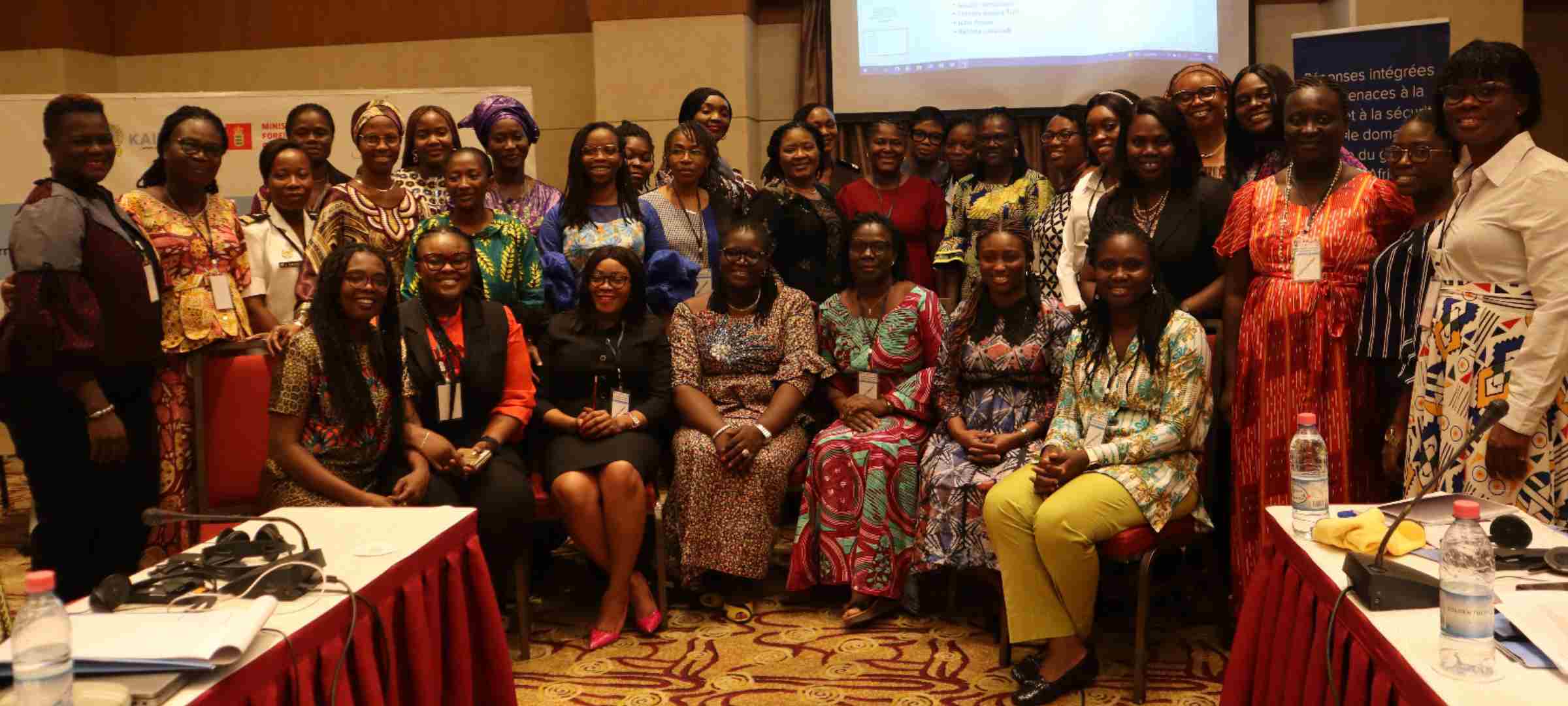Major General (Maj Gen) Richard Addo Gyane – Commandant of the Kofi Annan International Peacekeeping Training Centre (KAIPTC) says women’s contributions to the maritime sector brings diversity, new perspectives and innovative solutions to the industry’s challenges, and that their participation and contributions should be recognized.
The Commandant made the remarks at the opening of a two-day symposium on harnessing women’s contribution to the blue economy in the Gulf of Guinea (GoG) in Cotonou, Benin from July 19 to 20, 2023.
“From national navies, through to ports and maritime administration agencies and the fishing industry, women face multiple challenges in terms of roles, representation and participation in decision making,” he added.

He stated that the sector offered a range of opportunities for job creation, improved livelihoods and sustainable economic growth and development to populations across the region, including women, who unfortunately were often poorly represented across all the maritime sectors.
Maj Gen Gyane said while regional maritime frameworks generally remained gender neutral, emerging maritime security threats including Illegal, Unreported and Unregulated (IUU) fishing, maritime piracy, human trafficking, maritime pollution among others negatively affect women and their livelihoods.
He emphasised, that addressing maritime security challenges required a broad and inclusive approach, adding that a diverse gendered perspective in the maritime space would provide a relative advantage to ensuring a safer and secure maritime.
He, therefore, said “this project therefore falls within our vision and mission to promote effective implementation of relevant regional and international maritime protocols through research, policy dialogues and capacity development to control maritime crimes including piracy in the Gulf of Guinea.

Commodore Fernand Ahoyo, Maritime Prefect of Benin, who hosted the symposium, said “in the Gulf of Guinea, women play a vital role in the preservation of our marine resources, the economic development, and the promotion of maritime security.
He said women had demonstrated their ability to excel in areas traditionally dominated by men, whether in maritime transport, fishing, ocean research or marine resource management.
Commodore Ahoyo said by fostering greater inclusion and creating equal opportunities for women in the blue economy, stakeholders were strengthening the sustainability of the oceans, promoting economic growth and contributing to the social and human development of communities.
The two-day symposium witnessed various presentations from experts that touched on harnessing the potential of women to the blue economy, mainstreaming gender and also gaps and opportunities for women in the blue economy.

The symposium brought together participants from ten countries in the GoG, with country presentations on women’s experiences in the blue economy, and a communique adopted and issued at the end of the symposium, which essentially reads as follows:
- All existing and evolving national and regional maritime (in)security response frameworks must consciously make provisions for women’s capacity in the areas of maritime resource management, women’s career progression, protection, freedom of choice and assertiveness;
- National stakeholders should promote the establishment of a broader network for all ¬¬¬¬¬¬¬¬¬¬¬¬¬¬¬women in maritime, for the purpose of information sharing and mentorship in order to harness the contributions of women in the Gulf of Guinea (GoG);
- States should enhance gender mainstreaming in all maritime (in)security policies at all levels and in all areas in the maritime security sector.
- States should take steps to strengthen the technical capacities of women in the maritime domain through consistent funding of maritime security activities in order for them to deliver comprehensively;
- Civil societies and state agencies should enhance collaboration as a means to forging greater partnerships and build trust;
- Women in maritime should be more assertive and deploy all available techniques in pushing for the implementation of inclusive maritime policies in order to transform the culture of the maritime sector towards the inclusion of women’s contributions in the maritime sector;
- States should rethink the politics of ocean governance in order to address issues related to prices of goods, insurance and day-to-day maritime activities in order to make life less difficult for and increase the percentage contribution of the maritime sector to the economy;
- States should consider adopting specific legal provisions that prevent the concentration of power in the hands of male actors, as a means to promoting the participation of women in maritime in the GoG;
- States should adopt policies and programmes aimed at removing patriarchal structures which suppress women’s experiences in the maritime space, while promoting women’s leadership and participation in the blue economy;
- States should consider adopting measures to ensure the use of digital technologies to project maritime activities and opportunities; and
- There is the need to redefine the idea of the blue economy to reflect all the career opportunities in the sector in order to encourage the youth to explore the blue economy. The youth should be recognised and given opportunities in the maritime space.
